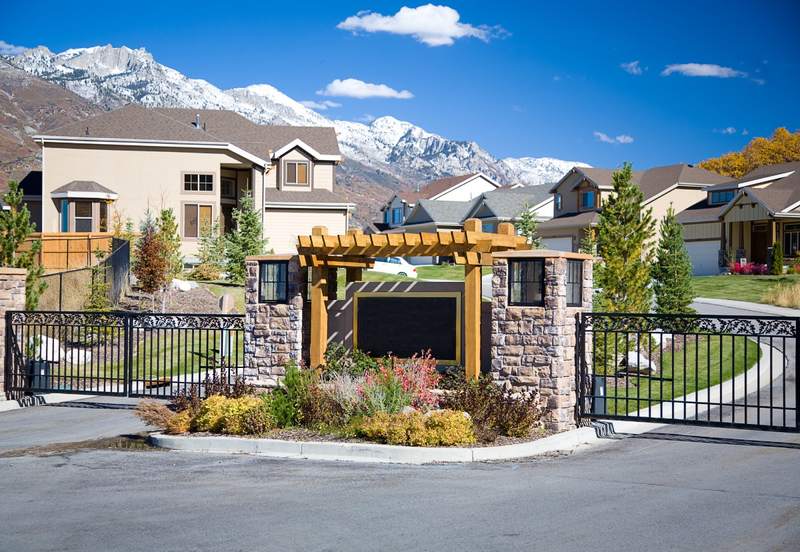
If you’re someone who wants to buy a house but feels frustrated by how unaffordable and out of reach it seems, you’re not alone. At the end of 2010, the median sales price for new homes in the U.S. was $241,200. By the end of 2022, that figure had nearly doubled to $479,500.
Many buyers have been priced out of the housing market due to rising home prices and higher interest rates. But while it’s more difficult these days to afford a home, it is possible.
Here are 10 tips for overcoming high home prices.
1. Pay Down Your Debts
The total amount of debt you have makes up 30% of your credit score — a major factor in the interest rate your mortgage lender will offer. A higher credit score gets you a lower interest rate, which in turn reduces your monthly payments and makes a home more affordable. So, if you reduce your total debt, then you could save money on a mortgage.
Paying down your debts also helps reduce your debt-to-income ratio. Calculate your DTI ratio by adding up your monthly debt payments, dividing the total by your gross monthly income, and multiplying by 100 to get a percentage. Lowering your DTI ratio will improve your chances of getting approved for a mortgage.
2. Avoid Big Expenses
Avoiding major expenses, like buying a new car or taking a vacation overseas, helps keep your debt in check and frees up more of your income to save for a down payment. Avoiding new debt also helps you maintain a good credit score. You’ll not only keep your total debt down but also avoid applying for new lines of credit, which can decrease your credit score.
3. Increase Your Income
Making more money is easier said than done, but even a small increase in your income can make a difference in how much home you can afford. Consider asking for a promotion or raise, or take on a side hustle.
That extra income can help you save up more for a down payment, which can help you score a lower interest rate. You also could put the extra money toward your closing costs, which usually total 2% to 5% of the home purchase price and must be paid upfront in addition to your down payment.
“In a world where an individual’s income barely matches their financial needs, this may sound unattainable,” says Rinal Patel, a Realtor and co-founder of We Buy Philly Home in Philadelphia. “However, getting lower rates for a mortgage is also crucial to saving costs. So, adjusting your budget would be a great way to start.”
4. Rethink Your Needs and Wants
Every aspiring homebuyer has in their mind an ideal home with all the features they need and want. But when it gets down to what you can afford, you’ll need to prioritize what matters most and be willing to compromise on other elements.
For some, this may mean buying a smaller home than you had hoped, or one in a less-than-ideal location. You also can decide between different types of homes, such as a house, condo, or townhouse.
Just remember that whichever one you buy now, you don’t have to live there forever.
“Buyers may have to settle for less than they originally imagined,” says Desiree Avila, a Realtor at Charles Rutenberg Realty in Fort Lauderdale, Florida. “Nevertheless, the important thing is to buy your first property, build equity, and upgrade. Owning a property is better than owning no property.”
5. Look In More Affordable Areas
If you can’t afford a home where you’d most like to live, consider expanding your search to more affordable areas. You may find a home in the city where you’ve been looking — just a different part of it.
Again, the first home you own doesn’t need to be your forever home. You can get started building home equity instead of watching each month’s rent payment just fly out the window.
6. Work With an Agent
An experienced real estate agent or Realtor can be invaluable when it comes to finding a home that fits your lifestyle and budget. Agents who specialize in certain areas may have early access to new home listings and help you get a jump on new offerings. Your agent also can help you negotiate a deal that you can afford and feel good about.
7. Explore Different Loan Options
If you’re having trouble finding a home loan, remember there are different loan types geared toward different types of buyers. While conventional loans are the most popular mortgage type, a government-backed loan could be a better fit for you. The most common types are backed by the Federal Housing Administration, Veterans Affairs, and the Department of Agriculture.
Here’s a look at how they compare:
Home Loan Types Compared
| Loan Type | Features |
| Conventional loans | – Most common type of loan. – Down payment as low as 3%. – Minimum credit score requirement of 620. – Private mortgage insurance is required with a down payment of less than 20%. |
| FHA loans | – Down payment as low as 3.5%. – Minimum credit score requirement of 500 with a 10% down payment. – Mortgage insurance is required. |
| VA loans | – Offered to current military service members, veterans, and their surviving spouses. – No down payment required. – No mortgage insurance required. – Limited closing costs. |
| USDA loans | – Offered to low- to moderate-income borrowers buying a home in rural areas. – No down payment required. |
8. Consider Down Payment Assistance Programs
Down payment assistance programs can be particularly helpful to buyers who can afford a monthly mortgage payment but have struggled to save for a down payment. These programs usually are offered by state and local governments or nonprofit organizations to low- and moderate-income first-time homebuyers. Other down payment assistance programs are offered to people in specific professions, such as teachers, firefighters, and other public service professions.
9. Team Up With Friends
Affording a home is easier with two incomes. If you’re single and eager to buy, consider teaming up with a trusted pal to buy a home together. The trick is choosing a friend you can get along with — or work well with in renting out the home to tenants.
“Just as one would get a roommate to make the cost of rent and maintenance more bearable, one could buy a property and get tenants whose rents would go towards paying the cost of purchasing the house,” Patel says.
10. Seek a Rent-to-Own Agreement
Rent-to-own is an arrangement where you pay extra rent to your landlord that can be credited toward buying the home at a later date. Rent-to-own opportunities can be difficult to find, and you may have to pay an upfront option fee as well, but it allows you to put money toward buying a home while you’re renting it.
FAQ
Here are answers to some frequently asked questions about overcoming high home prices.











